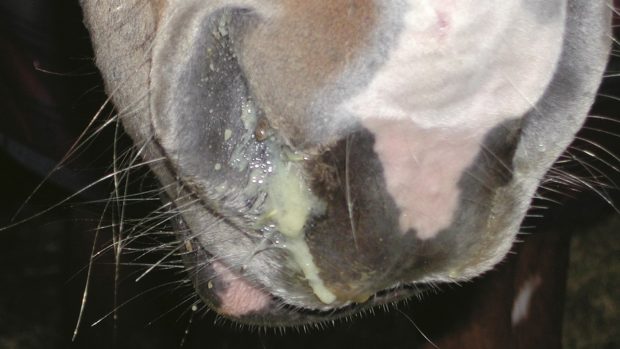All-in-one deals, which include a passport and a microchip, have allowed chip companies to make major inroads into the equestrian sector.
Although a microchip is not an alternative to a passport, it waives the need for a vet to fill out a silhouette and is seen as a useful additional form of identification.
The horse industry’s suggestions two years ago that the horse passports system should be microchip-based were rejected, although DEFRA is warming to microchips and sent a white paper on them to the EU earlier this year.
The Companion Animal Welfare Council report has also made recommendations to encourage microchipping, pointing out that unless you can identify an animal and link it to an owner, you can’t enforce any animal welfare legislation.
August is the second national microchipping month, run by the Kennel Club, which owns Petlog, one of the UK’s two major chip databases. The most frequently chipped animals are still dogs – not surprisingly, as there are more of them (7.5 million) than any other pet. But cats are catching up, with horses in third.
Pet-ID, which entered the equestrian chipping market only a year ago when it became a passport issuing organisation (PIO), has chipped – through vets – more than 30,000 horses since then.
Stan Ratcliffe, consultant to Pet-ID, says: “More than 10% of our business is now horses. But I never make any predictions about what people are going to want to chip next. We’ve chipped hospital beds, golf clubs, antiques, roads, trees, graves and speed boats.”
There are about 10 similar firms, including Animal Care, maker of Identichip, which has chipped all Thoroughbreds for Weatherbys since 1999 and also does Irish Horse Board-registered horses. Details are logged on one of the major databases – normally either Petlog, which is part of the Kennel Club, or Anibase, a subset of Animal Care.
“There are two separate storage points, but from the outside it’s like one database,” says Andy Pound from Animal Care, which even produces a chip that takes a horse’s temperature. “To identify a lost animal, people can just call one 24hr operator.”
A European chip can be traced through the European Pet Network, which contacts the dozen Europe-based databases.
Although chips are meant to last forever, readability and “migrating” issues do arise.
The British Association for the Purebred Spanish Horse Ltd has chipped all its registered horses since 1991, in line with Spanish requirements.
Treasurer Tina Barnett-Tucker says: “We have problems with migrating chips and with reading. About 50% of the time, they won’t read. Spanish horses have quite large, cresty necks, but we don’t know if this has anything to do with it.
“It isn’t the scanner or a particular kind of chip, because we’ve tried all sorts. We found a lost chip once with an ancient scanner that had hardly any battery, when none of the more modern ones could locate it. Another time, a microchip ‘disappeared’ and a second was put in. Then the first one reappeared and the second vanished.”
Stan Ratcliffe says: “Scanning can be a problem, vets should always use a test chip before scanning. The needle is 11⁄2in long and if the chip is inserted when the horse is young, it could be 2in below the skin, which makes it difficult to read.”
Andy Pound adds: “Our actual ‘failure’ rate is negligible at 0.001%. The silicon chip is encased in glass, and if there’s a microscopic flaw in the glass, body fluid can get in and corrode the chip.”
Tack has already been chipped and next in line could be horseboxes, which can be chipped both inside and outside.
|
||
 |
||


 Get up to 19 issues FREE
Get up to 19 issues FREE TO SUBSCRIBE
TO SUBSCRIBE 



